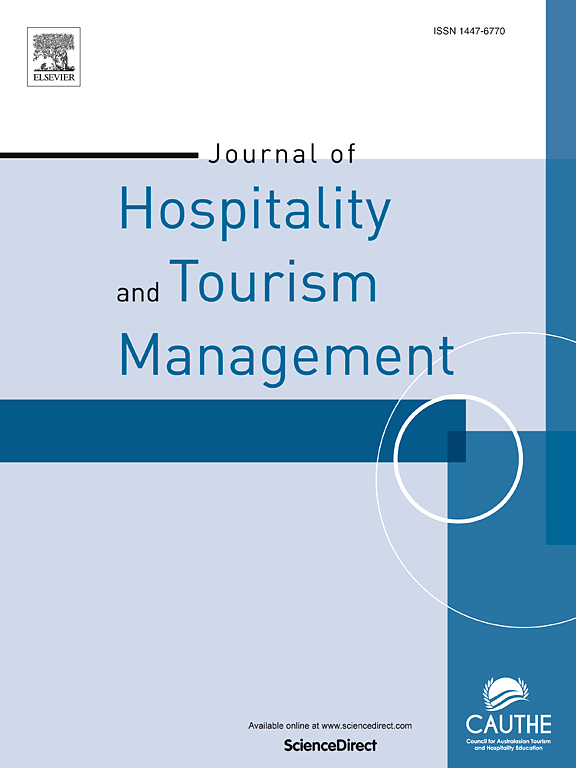危机后旅游动机研究:来自手段-目的链理论的见解
IF 7.8
1区 管理学
Q1 HOSPITALITY, LEISURE, SPORT & TOURISM
引用次数: 0
摘要
危机(COVID)后,旅游动机发生了深刻的转变,重塑了休闲旅游行为的核心。本研究利用手段-终端链(MEC)理论,探讨了目的地属性、旅行者结果(后果)和个人价值观之间复杂的相互作用,这些相互作用指导着旅行决策。440名美国居民的调查数据揭示了三个明显的现象:(1)“动机调整”,安全、自然风光和文化属性从外围位置上升到中心位置;(2)“压缩效应”,认知通路缩短;(3)“价值弹性”,即尽管通过重新配置的途径获得核心价值,但核心价值仍保持稳定。研究结果挑战了传统的旅行动机模型,表明一个新的框架对于理解塑造全球旅行行为的认知转变至关重要。此外,该研究还强调了心理健康在旅游决策中的重要性,强调了旅游产品现在必须满足更深层次的情感和体验需求。该研究还为旅游业从业者提供了可操作的见解,强调需要量身定制的危机后体验,以适应当今旅行者不断变化的价值观。本文章由计算机程序翻译,如有差异,请以英文原文为准。
A look into travel motivation post-crisis: Insights from means-end chain theory
Travel motivation has undergone a profound shift post-crisis (COVID), reshaping the very core of leisure travel behavior. Utilizing Means-End Chain (MEC) theory, this study investigates the complex interplay between destination attributes, traveler outcomes (consequences), and personal values that guide travel decision-making. Survey data from 440 US residents reveal three distinct phenomena: (1) “motivation realignment”, where safety, natural scenery, and cultural attributes have been elevated from peripheral to central positions; (2) “compression effect,” with the shortening of cognitive pathways; and (3) “value resilience,” wherein core values remain stable despite being accessed through reconfigured pathways. The findings challenge the traditional models of travel motivation, suggesting that a new framework is essential for understanding the cognitive shifts shaping global travel behavior. Moreover, the study emphasizes the increasing importance of psychological well-being in travel decisions, highlighting how tourism offerings must now meet deeper emotional and experiential needs. The study also provides actionable insights for tourism practitioners, emphasizing the need for tailored, post-crisis experiences that align with the evolving values of today's travelers.
求助全文
通过发布文献求助,成功后即可免费获取论文全文。
去求助
来源期刊
CiteScore
13.30
自引率
8.40%
发文量
177
审稿时长
45 days
期刊介绍:
Journal Name: Journal of Hospitality and Tourism Management
Affiliation: Official journal of CAUTHE (Council for Australasian Tourism and Hospitality Education Inc.)
Scope:
Broad range of topics including:
Tourism and travel management
Leisure and recreation studies
Emerging field of event management
Content:
Contains both theoretical and applied research papers
Encourages submission of results of collaborative research between academia and industry.

 求助内容:
求助内容: 应助结果提醒方式:
应助结果提醒方式:


